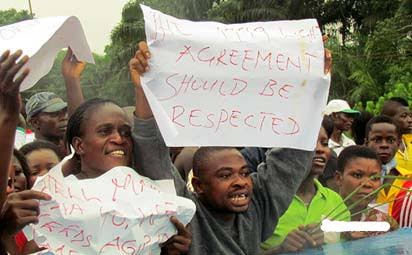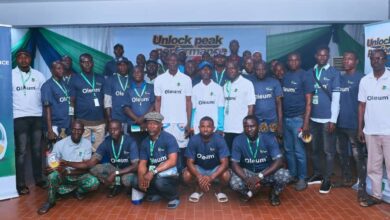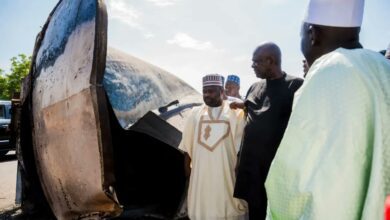3% PIA Fund: Host Communities Threaten To Shutdown Oil Production

Oil Communities in Bayelsa State have threatened to halt oil production in the area if the Nigerian Upstream Petroleum Regulatory Commission (NUPRC) fails to refrain from actions that could potentially reduce or create bottlenecks for the three per cent host community fund under the Petroleum Industry Act (PIA).
Their grievances were conveyed in a statement jointly signed by a foremost youth leader, Mr. Christopher Tuduo, His Royal Highness , Theophilus Moses, chairman Dodo River Rural Development Authority, Francis Amamogiran, Hon. Target Segibo of Oporoma Rural Development Authority and former Chairman of Koluama Clan Oil and Gas Committee, Engr Ebimielayefa Dick- Ogbeyan.
While issuing firm warning , the communities declared their readiness to take decisive action and escalate their efforts to address the concerns of the oil and gas communities if the Nigerian Upstream Petroleum Regulatory Commission (NUPRC) fails to treat the matter as an emergency.
Emphasising their proactive engagement in pacifying the youth across various communities since the signing of the Petroleum Industry Act (PIA), they underscored that the stability of oil operations could be compromised if NUPRC allows the situation to deteriorate further.
They asked the NUPRC to recognise the urgency of the matter and take immediate, substantive steps to resolve the concerns at hand.
They warned that improper handling of host community issues could have negative repercussions on Nigeria’s oil production and economy.
The communities stated that the NUPRC must reverse any action and regulations adversely affecting the host community to avoid severe backlash.
He noted that host communities are often excluded from the decision-making process, which results in the use of public resources to defend decisions in newspapers.
They criticized NUPRC’s intention, outlined in a letter dated 9th October, 2023, and signed by Capt. John R. Tonlagha for the Commission Chief Executive, which proposed participation in various activities related to the host community fund, such as BOT nominations, selection and inauguration, Management Committee Advisory Committee nomination and selection, and facilitation of NEEDs assessment.
He argued that this would be too much for the three per cent to fund.
The group maintained that while NUPRC’s oversight function is essential, over-involvement in the activities of the HCDTs is counterproductive and financially burdensome.
“They are getting into the operations arena, and this will not augur well for the industry because each participation by the NUPRC will be funded from the HCDT trust.”
The also criticized the mandate for HCDTs to hire lawyers and accountants with a minimum of 10 years’ experience, stating that it would be impossible to pay such professionals from the five per cent administrative fund, which comes from the three per cent.
They argued, “In reality, no NGO organizations, including those like Accord or the Nigerian Conservation Foundation, which is one of the most successful NGOs in Nigeria, employ full-time lawyers, let alone one with 10 years experience.
The HCDTs are styled as NGO organizations and should be expected to act according to the best practices and standards of that sector.”
The statement stressed further that by insisting that NUPRC must stop overstepping its boundaries, avoid acting as operators, and cease deducting expenses from the three per cent in cunning ways.
The group supports transparency and accountability, but the HostComply portal being developed by NUPRC to manage the administration of the fund should not be funded from the three per cent, as per Sele-Epri.
He stated that the regulator should bear the financial burden for the application, which enables it to monitor activities of different players more effectively.
Additionally, the group accused the regulator of insensitivity to the host communities’ concerns, particularly the allocation in the PIA and the criminalization of oil and gas asset destruction against communities lacking surveillance contracts.
They questioned the timing of NUPRC’s review of host community regulations, suggesting that the focus should be on setting up HCDTs and prioritizing benefits to the community.






